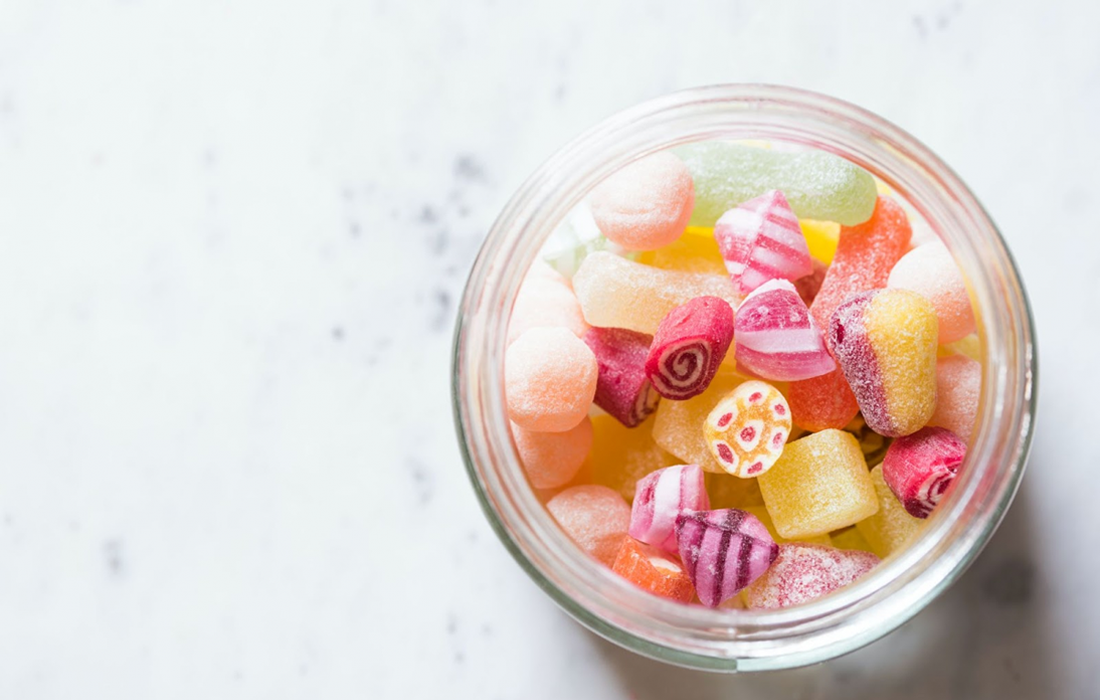Nutrition and Supplements
High-Sugar Diets Can Worsen IBD
Excess sugar hampers cells that renew the colon’s lining in a mouse model of inflammatory bowel disease (IBD), according to a new study by University of Pittsburgh scientists.
“The prevalence of IBD is rising around the world, and it’s rising the fastest in cultures with industrialized, urban lifestyles, which typically have diets high in sugar,” said senior author Timothy Hand, Ph.D. “Too much sugar isn’t good for a variety of reasons, and our study adds to that evidence by showing how sugar may be harmful to the gut. For patients with IBD, high-density sugar (found in things like soda and candy), might be something to stay away from.”
The researchers started by feeding mice either a standard or high-sugar diet. Then they mimicked symptoms of IBD by treating the animals with a chemical called DSS that causes damage to the colon.
To their shock, all the mice on the high-sugar diet died within nine days. In contrast, all the animals on the standard diet survived until the end of the 14-day experiment.
To learn what made sugar so deadly in mice with IBD symptoms, the team looked at the animals’ colons. The colon is lined with a layer of epithelial cells that are arranged in finger-like projections called crypts. In a healthy colon, these cells are continually replenished by dividing stem cells at the bottom of each crypt.
“The colon epithelium is like a conveyor belt,” said Hand, who is also director of Pitt’s Gnotobiotic Animal Core Laboratory. “It takes five days for cells to travel through the circuit from the bottom to the top of the crypt, where they are shed into the colon and defecated out. You essentially make a whole new colon every five days.”
When mice on the high-sugar diet were given DSS, that circuit collapsed, said Hand.
Unexpectedly, a high-sugar diet was similarly lethal in germ-free mice treated with DSS, showing that sugar affects the colon directly and is not dependent on the gut microbiome as the researchers had predicted.
Next, the team tested how sugar affected mouse and human colonoids.
“We found that stem cells were dividing much more slowly in the presence of sugar — likely too slow to repair damage to the colon,” said Hand. “The other strange thing we noticed was that the metabolism of the cells was different. These cells usually prefer to use fatty acids, but after being grown in high-sugar conditions, they seem to get locked into using sugar.”
“I think that we need to investigate more deeply what diets are going to benefit patients who have intestinal damage, whether that be from IBD or from radiation therapy to treat colon cancer,” said Hand. “It’s about a nutraceutical approach to colon damage, or the idea of finding the right diet for a particular patient” says Hand.
Sources:
Ansen H.P. Burr, Junyi Ji, Kadir Ozler, Heather L. Mentrup, Onur Eskiocak, Brian Yueh, Rachel Cumberland, Ashley V. Menk, Natalie Rittenhouse, Chris W. Marshall, Pailin Chiaranunt, Xiaoyi Zhang, Lauren Mullinax, Abigail Overacre-Delgoffe, Vaughn S. Cooper, Amanda C. Poholek, Greg M. Delgoffe, Kevin P. Mollen, Semir Beyaz, Timothy W. Hand. Excess dietary sugar alters colonocyte metabolism and impairs the proliferative response to damage. Cellular and Molecular Gastroenterology and Hepatology, 2023; DOI: 10.1016/j.jcmgh.2023.05.001
University of Pittsburgh. “Study may explain why high-sugar diets can worsen IBD.” ScienceDaily. ScienceDaily, 22 May 2023. <www.sciencedaily.com/releases/2023/05/230522131405.htm>.
Images from:
Photo by Joanna Kosinska
https://unsplash.com/photos/-ayOfwsd9mY

